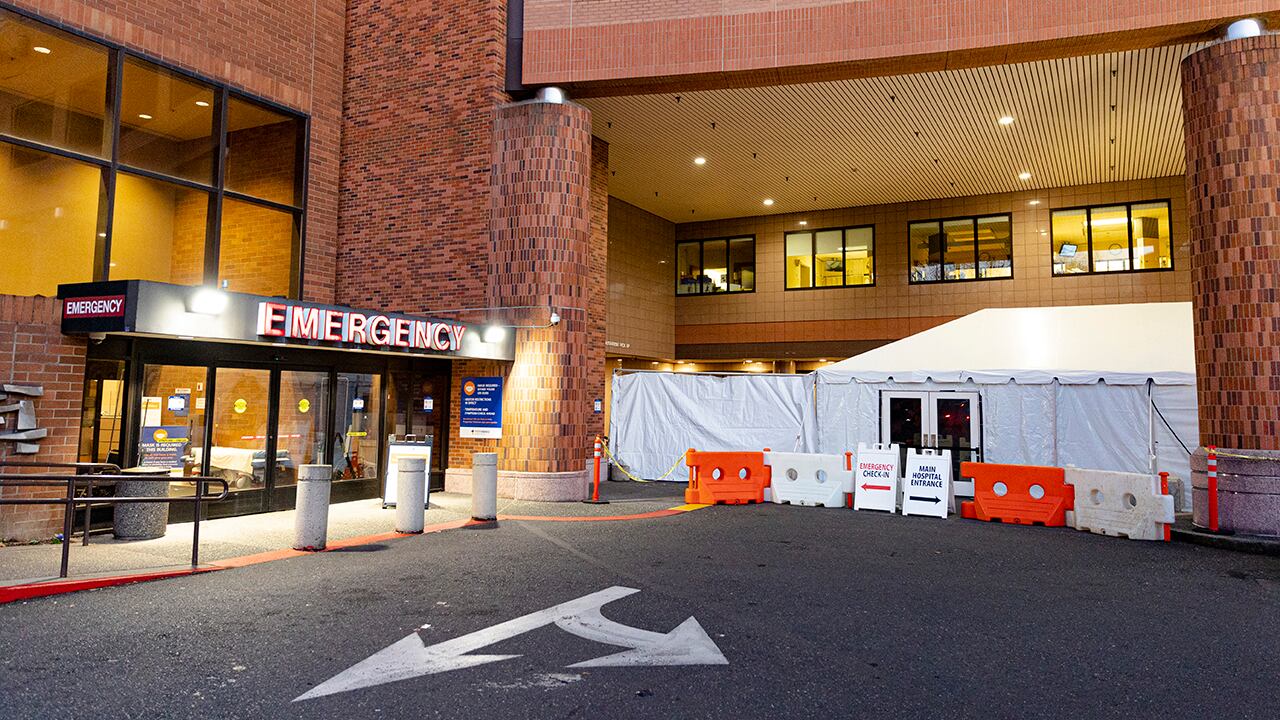Last week, Providence Health & Services, the state's biggest hospital group, went on red alert because of the state's steeply increasing coronavirus caseload. "We face an unprecedented surge of COVID-19 patients," Providence executives told staff in an email obtained by The Oregonian.
Yet as Providence steels itself for the surge, it remains locked in a battle with its own employees about whether they're owed compensation for getting exposed to the virus on the job.
"As the pandemic has gotten worse, Providence has gotten worse," says Oregon Nurses Association spokesman Kevin Mealy, whose union represents Providence nurses. "They aren't protecting their frontline providers."
All of Oregon's nearly 2 million workers are covered by worker's compensation insurance. (All employers are required to purchase insurance for their workers or self-insure.) About 20% of those employees work in health care.
Yet state figures continue to show a phenomenon WW first reported in July: A disproportionate chunk of all the denied nondisabling workers' compensation claims related to COVID-19 come from Providence Health & Services, which is self-insured. (The state defines a "nondisabling" claim as one for which the claimant requires medical services but is unlikely to be permanently impaired.)
Providence has denied 90 such claims statewide this year. No other employer has denied half that number.
Providence spokesman Gary Walker says the hospital chain complies with state workers' compensation laws and welcomes claims from employees. But Walker says of the 90 denials that only one person actually tested positive for COVID-19, and that was a nonworkplace exposure.
"Exposure just means someone claimed exposure, and not that they tested positive or actually contracted COVID-19," Walker said in an email. "If someone tests negative or is not symptomatic, there is actually nothing to 'accept' for medical or disability benefits."
In other words, Walker says Providence employees are seeking workers' compensation to which they are not entitled. Mealy says he's puzzled that Providence remains an "outlier."
"Nurses have been asking for basic health and safety measures for months," he says. "That includes adequate PPE, exposure notification, access to testing, COVID-19 sick leave, and presumptive eligibility for workers' compensation. It's time for Providence to prove it cares about its caregivers."
In at least 14 states, including Washington and Wyoming, according to the National Council of State Legislatures, workers who say they contracted COVID-19 in the course of their work are presumed to have gotten infected at work and are automatically covered by workers' comp. In Oregon, the state panel that advises the Legislature and Gov. Kate Brown on workers' compensation deadlocked this summer on whether to provide "presumptive coverage."
Gov. Brown and Senate President Peter Courtney (D-Salem) declined to comment, but House Speaker Tina Kotek says she's frustrated with the state's failure to protect frontline workers and will push for legislation next year.
"Speaker Kotek supports a workers' compensation insurance presumption that would provide basic protection and security for workers who are essential to a sustained economic recovery," said her spokesman Danny Moran.
Here are the statistics from the Oregon Department of Consumer and Business Services for denied nondisabling claims for COVID-19 for all insurers through Nov. 30. The state does not track how many nondisabling claims insurers accepted.


